China-Indonesia economic relations to strengthen in seven areas
Under the Prabowo presidency, China-Indonesia economic relations in areas like infrastructure and green development are set to grow, says Chinese academic Wu Chongbo.
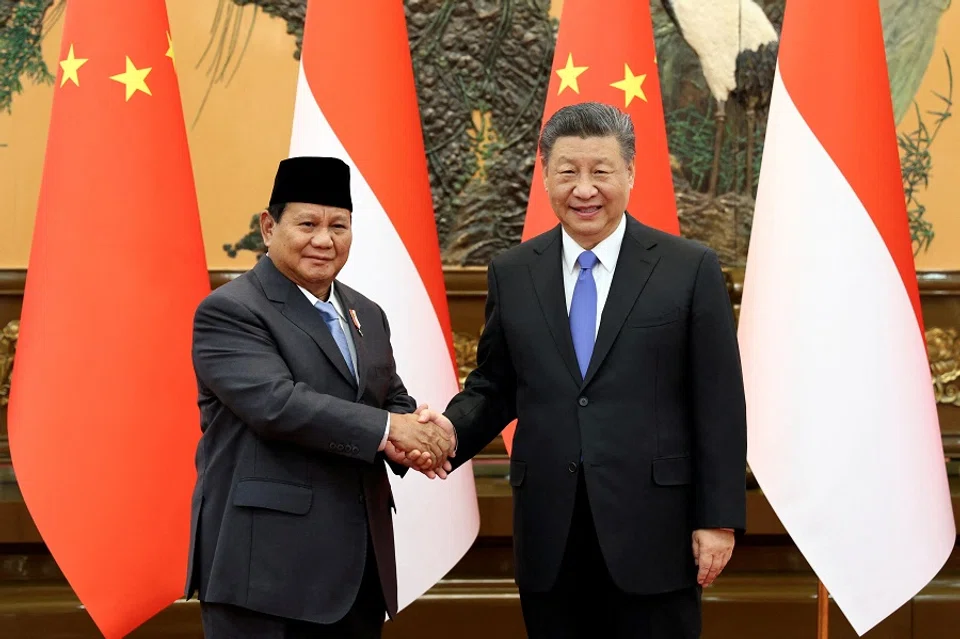
The Indonesian Election Commission announced the final vote count of the presidential election on 20 March. Garnering 58.58% of the vote, Defence Minister Prabowo Subianto became the president-elect, and will take over the helm of the largest country in Southeast Asia on 20 October.
Strong economic partners with common goals
China and Indonesia, both developing and emerging economies, are important neighbours of each other. The development concepts of the two countries are similar and their common interests are interconnected.
Moreover, the implementation of China’s Belt and Road Initiative (BRI) and Indonesia’s Global Maritime Fulcrum (GMF) concept over the last decade has greatly expanded the space for bilateral strategic cooperation. The Jakarta Bandung high-speed railway launch in 2023 also underscored the valuable cooperation between China and Indonesia.
At the same time, Chinese enterprises are significantly involved in the advancement of downstream industries in Indonesia, notably contributing to the historic development of nickel ore smelting and positioning Indonesia as a key global producer of stainless steel. The power plants constructed by Chinese enterprises in Indonesia also account for a quarter of Indonesia’s total power generation.
... it is highly likely that the new president will continue the friendly cooperation policy towards China under President Jokowi’s presidency.
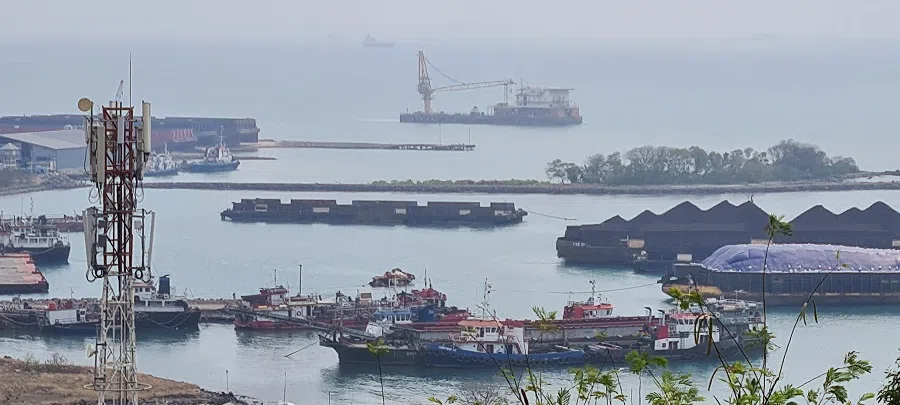
China is currently Indonesia’s largest export destination, accounting for 16% of Indonesia’s total exports, far exceeding major trading partners such as the US and Japan. It can be expected that after Prabowo is inaugurated in the new capital “Nusantara” in East Kalimantan, the trend of friendly cooperation between China and Indonesia will be irreversible, and it is highly likely that the new president will continue the friendly cooperation policy towards China under President Jokowi’s presidency. The main reasons are as follows:
Firstly, Prabowo and Jokowi share many similar or even identical governance concepts, such as their focus on development, their desire to improve people’s livelihoods and their commitment to achieving the “2045 Golden Indonesia Vision”.
In addition, in terms of political structure, most of the political party alliances that support Prabowo are those that support the Jokowi government, and the election of Jokowi’s eldest son Gilbert as vice- president also increases the difficulty for Prabowo to deviate from the overall direction of Jokowi’s governance in the future.
Of course, Prabowo’s background is that of a soldier, and his toughness is his distinctive style. It is not ruled out that he will introduce policies different from the Joko government during his presidency. However, strategic deployments such as economic growth, capital relocation, anti-corruption, poverty alleviation, downstream industry, and regional leadership will become important issues of concern for the new government and are likely to be difficult to change. And in all of these areas of focus, China can provide help.
Prabowo designating China as his first visit abroad as President-elect demonstrates the special nature and closeness of China-Indonesia relations...
Prabowo expected to stay the course
On the 11th day after the Indonesian Election Commission declared him the winner of the elections on 20 March, Prabowo began his visit to China. According to convention, China has rarely invited an elected president who has not yet undergone a formal transfer of power to visit China.
Prabowo designating China as his first visit abroad as President-elect demonstrates the special nature and closeness of China-Indonesia relations, highlighting the high level of importance that both leaders attach to China-Indonesia relations.
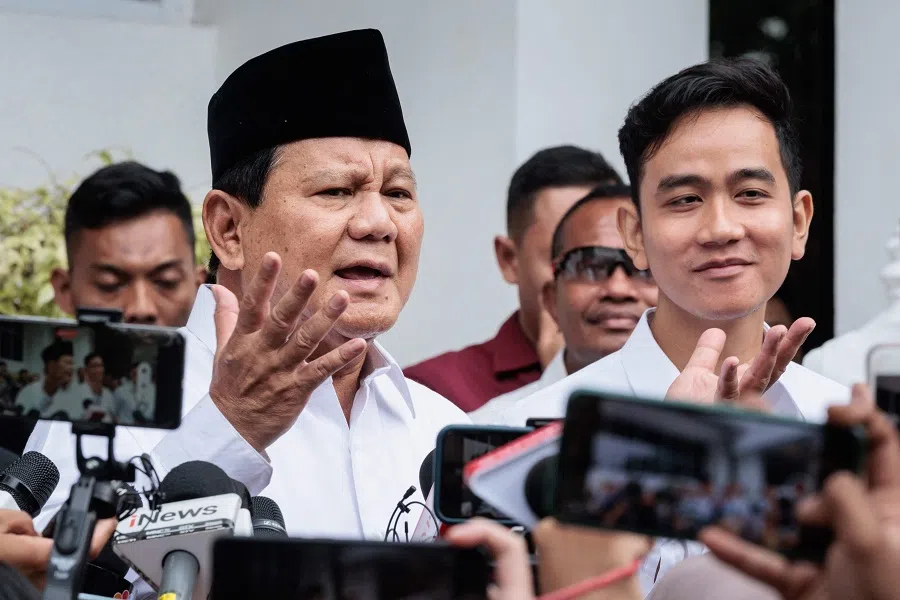
During the meeting with Chinese President Xi Jinping, Prabowo expressed full support for the development of closer Indonesia-China relations, and said that he was willing to continue President Jokowi’s friendly policy towards China, adhere to independence and autonomy, and the one-China policy consistently pursued by the Indonesian government.
He would also firmly support mutual core interests, promote more comprehensive and high-quality development of bilateral relations, and implement the important consensus building a community with a shared future for both countries.
As a tough but flexible politician, Prabowo cannot ignore the significant benefits that the development of China-Indonesia relations has brought to Indonesia. At present, China is Indonesia’s largest trading partner and the second largest source of foreign investment.
Indonesia’s strategic goals cannot be achieved without China’s support and cooperation, and requires China’s full assistance.
China and Indonesia have deep cooperation in infrastructure, production capacity, green development, digital economy, e-commerce and other fields, demonstrating broad prospects. This not only creates a large amount of foreign exchange income for Indonesia, but also absorbs a large number of the employed population.
For the new government of Prabowo, leading Indonesia to increase its economic growth rate from 5% to 7%, promoting the country’s entry into the “fast lane of development”, and achieving the “2045 Golden Indonesia Vision” are its priority strategic goals.
Focus areas for economic cooperation
Indonesia’s strategic goals cannot be achieved without China’s support and cooperation, and requires China’s full assistance. Thus, Prabowo is more likely to follow the policies of the Joko era towards China, especially economic and trade policies, while continuing to explore new growth points in economic and trade cooperation with China, rather than making significant adjustments to existing policies.
Therefore, in the next five years, economic cooperation between China and Indonesia is expected to focus on the following areas.
China is also Indonesia’s largest trading partner, largest export destination, and import source country.
1) Continued development of bilateral economic and trade relations
China and Indonesia have close economic and trade cooperation. China has been Indonesia’s largest trading partner for ten consecutive years. In 2014, when President Jokowi took office, the trade volume between the two countries was only US$50 billion. In 2019 and 2020, the bilateral trade volume remained stable at US$79.73 billion and US$78.37 billion respectively.

In 2021, the bilateral trade volume reached US$124.34 billion, an increase of 58.43% year-on-year, of which the export volume was US$60.67 billion and the import volume was US$63.76 billion. Indonesia has become China’s third largest trading partner in ASEAN, with year-on-year growth of 48.1% and 70.1% respectively, and bilateral trade is basically balanced. In the following year, bilateral trade between China and Indonesia reached US$149.08 billion, a year-on-year increase of 19.8%.
Investment cooperation has become the biggest highlight of China-Indonesia economic and trade cooperation, with over 1,000 Chinese enterprises investing and operating in Indonesia...
Indonesia remains China’s third largest trading partner in ASEAN, second only to Vietnam and Malaysia and China is the main export market for key commodities such as palm oil, coal, steel, bird’s nest, and bamboo in Indonesia. China is also Indonesia’s largest trading partner, largest export destination, and import source country.
According to data from the Indonesian Central Bureau of Statistics, the bilateral trade volume of goods between China and Indonesia reached US$127.12 billion in 2023. Indonesia has raised its export target to China by 2024 to US$65-70 billion, formulating multiple cooperation plans.
Investment cooperation has become the biggest highlight of China-Indonesia economic and trade cooperation, with over 1,000 Chinese enterprises investing and operating in Indonesia, in the manufacturing, agriculture, hydropower, minerals and other fields.
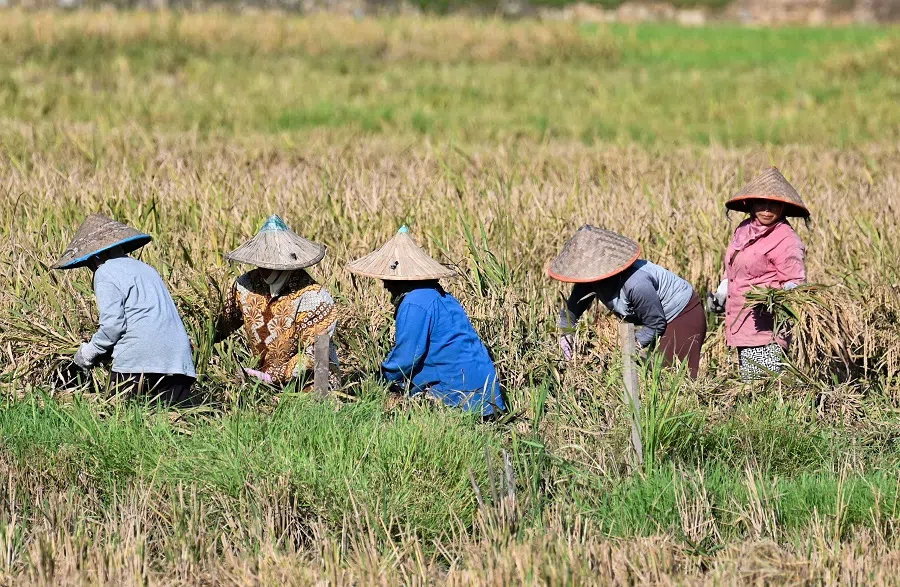
From 2015 to 2020, China invested US$17.29 billion in Indonesia, ranking third only to Japan (US$24.67 billion) and Singapore (US$46.5 billion). According to the data released by the Indonesian Investment Coordination Bureau, this figure reached US$8.2 billion in 2022 alone, ranking second only to Singapore. In 2023, China’s direct investment in Indonesia exceeded US$7 billion.
2) The ‘Two Countries, Twin Parks’ project
The “Two Countries, Twin Parks” project is an innovative way to deepen economic and trade cooperation between the two countries.
Under a memorandum of understanding (MOU) signed in January 2021 between the Ministry of Commerce of China, Fujian province and the Ministry of Maritime Statistics of Indonesia, the Fuqing Yuanhong Investment Zone in China’s Fujian province serves as the Chinese cooperation park, and Indonesia’s Bintan Industrial Estate, Aviarna Industrial Estate and Batang Industrial Estate serve as the Indonesian cooperation park.
Cooperation between the parks will start from the food industry and expand to other fields such as marine economy, building materials, energy, and light industry.
This initiative connects the BRI and the GMF, establishing an international cooperation platform and a green channel for investment and trade processes in the industrial supply chain. It focuses on enhancing industrial and facilities connectivities, and mutually beneficial policies.
3) Indonesia’s capital relocation plan
On 18 January 2022, the Indonesian parliament passed a capital relocation bill, planning to relocate the country’s capital from Jakarta in a northeast direction to East Kalimantan province starting in 2024. The new capital will be named “Nusantara”.
The Indonesian side has high expectations for China’s financial and technological strength.
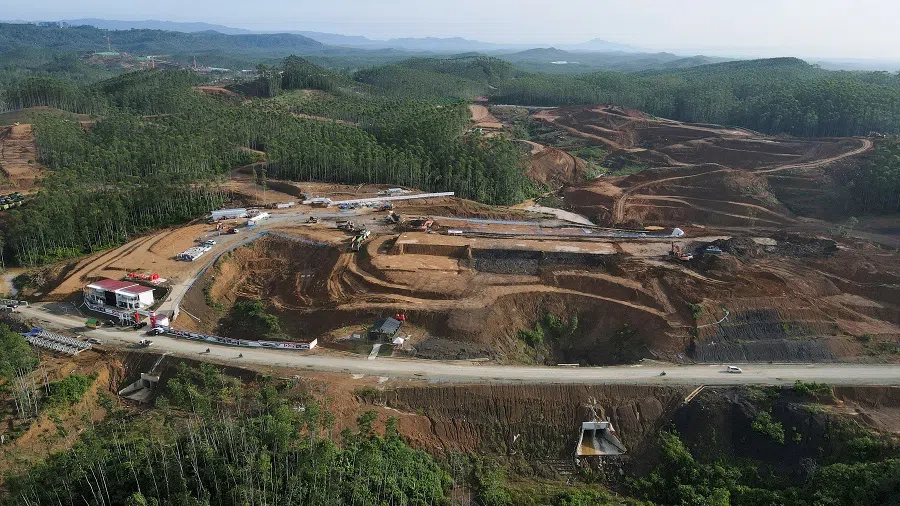
According to the planning requirements, the new capital will have an area four times that of Jakarta, requiring significant investment in the construction of railways, subways, roads, reservoirs, bridges, and other infrastructure. It is estimated that the construction budget for Indonesia’s new capital is as high as US$34 billion, and only about 20% of this huge amount comes from the Indonesian government coffers, with the remaining 80% coming from private enterprises and government cooperation between Indonesia and other countries.
Financial pressure has always been a thorny issue faced by the government. The Indonesian side has high expectations for China’s financial and technological strength.
In terms of raising funds for the construction of the new capital, the Indonesian government also has high expectations for China’s investment and hopes that China will increase its investment in the surrounding infrastructure of the new capital.
In recent years, China’s investment in Indonesia has skyrocketed, with many Chinese enterprises including China Railway Corporation, China Construction, China Road and Bridge Corporation, Huawei, ZTE, Qingshan, and Delong deeply rooted in Indonesia.
Their investment areas include agriculture, mining and metallurgy, electricity, real estate, manufacturing, industrial parks, digital economy, and finance and insurance. China has achieved practical results in infrastructure construction around the new capital of Indonesia. It is expected that cooperation in the construction of the new capital will continue.
4) Comprehensive industrial park construction
Since 2012, the two countries have gradually promoted the construction of comprehensive industrial parks in fields such as mining and agriculture in Indonesia, and carried out industry capacity cooperation.
... the Qingshan Industrial Park has risen to prominence. The per capita income of Morowali county, where the park is located, has increased from less than US$1,000 in 2012 to US$36,000 today.
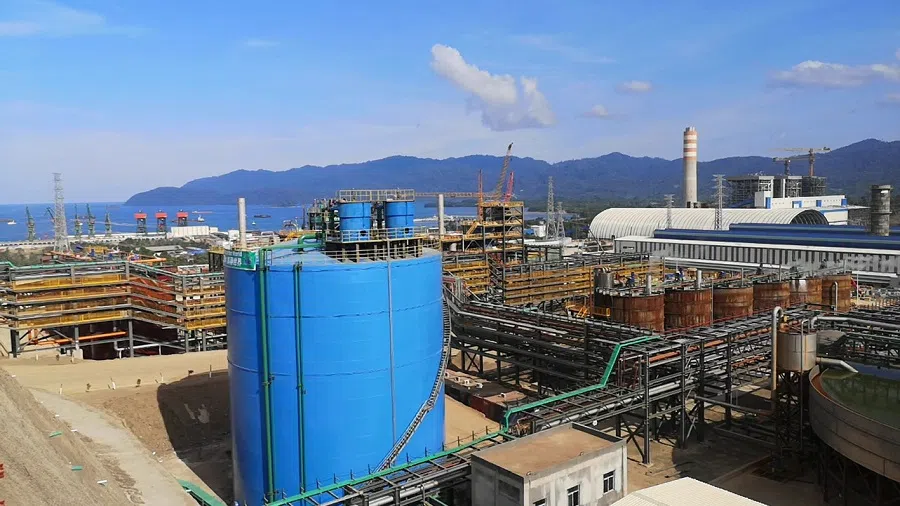
Chinese companies have established three national level overseas economic and trade cooperation zones in Indonesia, namely Julong, Qingshan, and China-Indonesia Economic and Trade Cooperation Zone, as well as more than ten completed or under-construction cooperation parks.
In Indonesia’s North Sulawesi province, thanks to investment from Chinese companies, the Qingshan Industrial Park has risen to prominence. The per capita income of Morowali county, where the park is located, has increased from less than US$1,000 in 2012 to US$36,000 today. The industrial park also helps Indonesia become an important global producer of stainless steel.
5) ‘Regional Comprehensive Economic Corridor’
In May 2017, when Indonesian President Jokowi came to China to attend the “Belt and Road” International Cooperation Summit Forum, he put forward the initiative of building a “regional comprehensive economic corridor”, that is, to build an integrated economic corridor in four provinces of North Sumatra, North Kalimantan, North Sulawesi and Bali. At that time, it was called the “Three North Economic Corridor” representing the second stage of the development strategy alignment between China and Indonesia.
Later, Jokowi instructed and coordinated a leading group under Minister Luhut Binsar Pandjaitan, Indonesia’s coordinator for cooperation with China and coordinating minister of maritime affairs and investment, to prepare a list of priority projects to explore investment opportunities under China’s BRI.
In October 2018, during a meeting in Beijing between Chinese Foreign Minister Wang Yi and Luhut, the Joint Steering Committee for the Development of Regional Comprehensive Economic Corridors (Corridors) between China and Indonesia was established to comprehensively coordinate the cooperation between the two countries under this framework.
Earlier in May 2018, during Premier Li Keqiang’s visit to Indonesia, the two countries reached a consensus on cooperation on the “Regional Comprehensive Economic Corridor” and signed the “Memorandum of Understanding on Promoting Cooperation on the Development of Regional Comprehensive Economic Corridors”, thus officially launching the cooperation on the regional economic corridor.
6) Digital economy
As the largest economy in the ASEAN region, Indonesia has been leading its neighbouring countries in developing its digital economy. In 2022, Indonesia’s digital economy reached a scale of US$70 billion, ranking first in the region. In addition, there are over 2000 technology startups in Indonesia, accounting for half of the ASEAN region.
China has made great achievements in developing the digital economy. Internet enterprises such as Alibaba, Tencent and Jingdong have entered the Indonesian market.

It is expected that Indonesia’s digital economy will grow to US$150 billion by 2025, and with the assistance of the ASEAN Digital Economy Framework Agreement, it will increase to US$300-400 billion by 2030, accounting for 40% of the total digital economy in the region.
Thanks to the huge digital population, Indonesia has become the country with the largest Internet economy in Southeast Asia and the fastest development speed. The digital economy has become an important engine driving the growth of the national economy.
In 2023, Indonesia achieved a digital economy with a Gross Merchandise Value (GMV) of US$82 billion. The information and communication sector accounts for 7.2% of Indonesia’s GDP, with an average annual growth rate of 10%, far higher than the 5% average growth rate of gross domestic product.
The government attaches great importance to developing the digital economy and will continue introducing measures to promote digital transformation in the economic, education, financial, transportation and healthcare fields. It has set a goal for the digital economy to account for 18% of the domestic GDP by 2030.
China has made great achievements in developing the digital economy. Internet enterprises such as Alibaba, Tencent and Jingdong have entered the Indonesian market. In the future, enterprises from both countries will continue to deepen cooperation, further enhance the level of digital economy cooperation, share the dividends of the digital economy, and jointly create new highlights of bilateral economic and trade cooperation.
Fujian, a major economic province in the eastern part of China, is strongly supporting and encouraging its enterprises to actively connect with Indonesian parks and enterprises, and deeply participate in Indonesia’s emerging industries...
7) Green economy
The Indonesian National Energy Policy released in October 2014 stipulates that the proportion of renewable energy in Indonesia’s energy composition will be increased to 23% by 2025 and 31% by 2050.
In addition, Indonesia is promoting green reforms in the transportation sector, hoping that vehicles can adopt more environmentally friendly energy sources, and vigorously developing solar, tidal, and wind energy projects on remote islands.
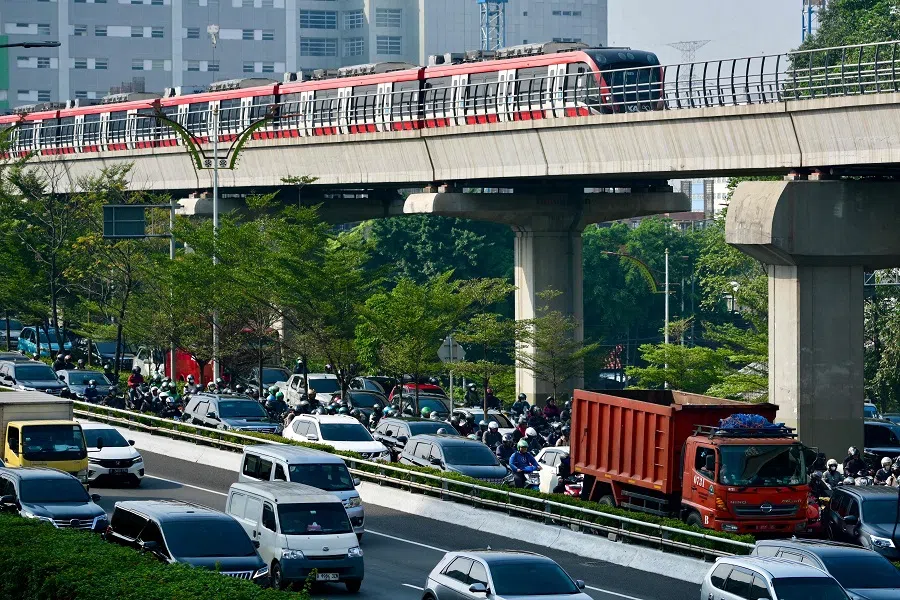
The design and construction of the new capital East Kalimantan, which is about to enter large-scale construction, will also implement the concepts of green and sustainable development. After completion, it will possess the characteristics of a modern city such as a “green city” and a “smart city”. To develop a green economy, Indonesia needs to invest up to US$52.3 billion annually.
China and Indonesia share similar aspirations and needs in the field of green economy, with much complementary potential. Among them, Fujian, a major economic province in the eastern part of China, is strongly supporting and encouraging its enterprises to actively connect with Indonesian parks and enterprises, and deeply participate in Indonesia’s emerging industries with green economic characteristics such as new energy, renewable resource utilisation, and marine economy.
The recent active promotion of the “Two Countries, Twin Parks” project will also promote cooperation between Chinese and Indonesian enterprises in multiple green economic fields such as electric vehicles and lithium batteries.





